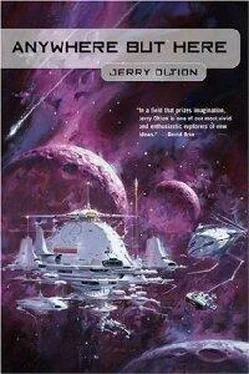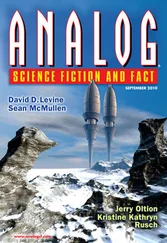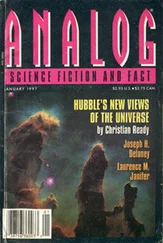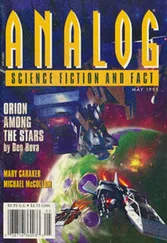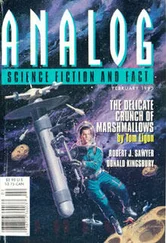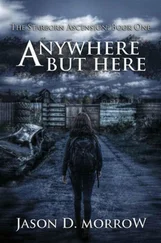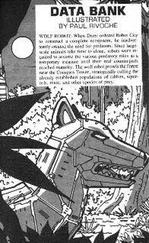He had no idea where they were going, and didn’t really care. He aimed them in the general direction of Bigtown whenever he had a choice, but mostly he just drove. They weaved between rock outcrops and clumps of trees, dropped into gullies and climbed hills, detoured to look at a field full of blue flowers (Donna’s idea) and a lightning-blasted tree trunk (Trent’s idea), and sang along with the music when they weren’t screaming in terror or laughing with relief at surviving yet another argument with gravity.
Trent tried not to spin the tires or turn sharp enough to skid. A lifetime of being told that bare ground was fragile had burned the message into his head pretty deep. He didn’t necessarily want to leave tracks so long as he could make tracks, and do it in style. The balloon tires helped; they distributed the pickups weight over a much wider patch of ground than regular tires would have. That hadn’t been Trent’s reason for buying them—he’d got them because they were good in mud and they looked cool—but he was happy enough to think that they were environmentally friendly to boot.
Half a dozen times over the next hour they stopped to watch someone else land. Most of the new arrivals were too far away to see more than their parachutes, but one came right overhead: a bright green and yellow ultralight aircraft piloted by someone in a polar parka. Presumably he had a Ziptite suit on underneath all that insulation, but that looked to be his only concession to vacuum. He waggled his wings as he flew over Trent and Donna, and Trent tooted the horn at him in response.
“Either that guy’s nuts,” Trent said, “or he’s the smartest person I’ve seen yet.” They watched him fly on toward Bigtown, covering the same distance in a couple of minutes that Trent and Donna had driven in an hour. He didn’t have to worry about parachutes, either. Or leaving a launch crater. A guy could commute to work that way pretty easy.
“Don’t even think about it,” Donna said.
“Huh?”
“I know that look, Trent Stinson. Space flight is dangerous enough; I’m not going to worry about you flyin’ around in an electric kite, too.”
“Yes ma’am ,” he said. Her tone of voice said she was joking, but he knew her well enough to know that it would remain a joke only as long as he didn’t try it. There were limits to her tolerance for his gung-ho attitude, and he could push those limits only so far. He’d been surprised she’d let him build a hyperdrive and outfit the truck for space, but on that she had been curiously quiet, even encouraging. At first he’d thought maybe she was just being polite to their guests—Allen was, after all, the inventor of the hyperdrive, and Judy was an astronaut, so it wouldn’t have looked good to badmouth space travel when they were around—but even after they’d left she’d been all for it. Getting shot at on the way home from their first trip hadn’t even dampened her spirits for it.
He wondered how Allen and Judy were doing. The Galactic Federation they had started was still expanding, adding new species every couple of days as the secret of the hyperdrive snowballed out into the galaxy, so Judy was almost certainly chin-deep in paperwork dealing with that, but Trent couldn’t imagine Allen doing a desk job. He was more likely in a lab somewhere, probably on the enormous spaceship of the alien Tippets, inventing something new to surprise everyone with. Antigravity would be good, Trent figured. That would be the last step that would really make hyper-space travel safe. Maybe he should track Allen down and suggest it.
The sun was getting pretty close to the horizon when they finally came up over a rise and saw a long, sinuous line of trees meandering off into the distance. Silvery water glinted between the trunks in the last rays of sunlight. It didn’t look like a big river—maybe ten feet across—but it was plenty big enough to camp by. Trent drove the truck toward it down a long, gentle slope that ended in an impenetrable thicket of six-foot-high bushes, then drove along the side of the hill looking for a break in the thicket.
It was a long time coming. The thicket went on and on, choking off access to the water as effectively as a prison fence. There were no fords, no game trails, not even a bare rockslide they could climb down. Every inch of ground within twenty feet of the water was covered with dense brush. “You know,” Trent said after a while, “these bushes are starting to look downright unfriendly.”
She nodded. “Yeah. I wonder how the animals get any water.”
They hadn’t seen any animals yet, but that wasn’t surprising. Animals tended to get out of the way of something the size of a pickup, especially if they hadn’t seen one before. Now Trent was beginning to wonder if they had been starved out long before he and Donna had gotten here. From the looks of those bushes, a rabbit would have a hard time getting down to the stream.
“Nuts to this,” he said at last, when the sun was below the horizon and the sky was starting to turn pink. “I’ve got a machete; let’s just make us a gap.”
“That seems kind of destructive just to reach the creek,” Donna said, “but it looks like that’s going to be our only way.”
“It’s a wild planet,” Trent said, pulling to a stop on a grassy patch of level ground next to a spot that looked like it might be a little thinner than the rest. “Nobody’s made any campsites here ahead of us.”
He got out and rummaged behind the seat for the machete, dug some more until he found a pair of gloves, and marched down to the brush line. He could hear the stream gurgling softly only a few feet away, but it was completely hidden behind the brush.
He expected to see three-inch thorns studding the branches, but the bushes looked more like chokecherry, complete with clusters of dark brown berries, maybe a quarter inch in diameter, nestled among soft, round leaves. Trent wondered if they were edible. He wasn’t about to try it on his own, but somebody had no doubt tried them already, and they—or their survivors—would know. He would have to remember to ask when they got to town.
If they ever made it. Town was on the other side of the stream, and Trent’s first whack with the machete felt like he’d struck a clump of steel cables. A couple of branches flopped over, broken but not cut all the way through. So much for the mighty swordsman image. He took a bigger swing and managed to slice them off, plus another one below. This was going to be work.
He hacked away for five minutes or so before he had to take a break. In all that time, he’d only carved a tunnel about four feet into the bushes. He would have told Donna to forget it, that they’d just use water from their storage tank tonight, but he was already sweating so hard and stained with orange sap that he needed a bath before he crawled into his sleeping bag.
As he stepped back from the bushes and swept his sweaty hair out of his eyes, he caught sight of a star way up in the darkening sky. It glowed like Venus at its brightest, but this was almost straight up, and now that he looked at it for a few seconds he could see that it was moving ever so slowly toward the south.
“Check that out,” he called to Donna, who was inside the camper fixing lunch or dinner or whatever they were going to call it. She stuck her head out and he pointed. “Somebody coming down in something shiny. They’re still high enough to catch the sunlight.”
“Neat.” She watched for a while longer, then went back inside. Trent went back to work on the bushes, but he kept sneaking glances at the descending “star.” It grew redder as it fell deeper into the atmosphere, catching more and more sunset light. As it drew closer he could see that the parachute was the bright part; the payload was just a dark speck under the bright silver canopy. It really sparkled, like it was made of tin foil or something. Trent wouldn’t be surprised if somebody had tried that—they tried everything else, it seemed—but he doubted if that’s what this was. Whatever they’d used here was actually working.
Читать дальше
